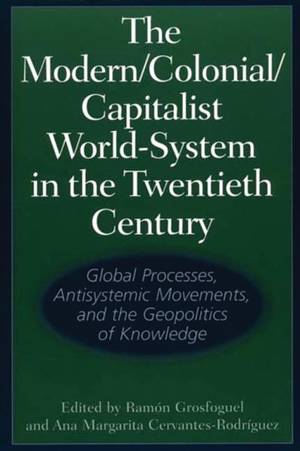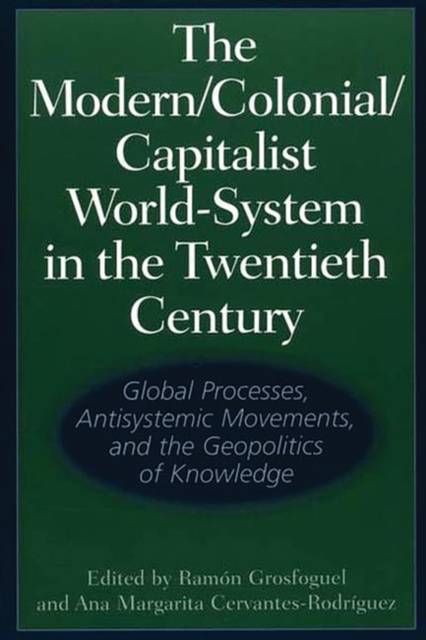
- Afhalen na 1 uur in een winkel met voorraad
- Gratis thuislevering in België vanaf € 30
- Ruim aanbod met 7 miljoen producten
- Afhalen na 1 uur in een winkel met voorraad
- Gratis thuislevering in België vanaf € 30
- Ruim aanbod met 7 miljoen producten
The Modern/Colonial/Capitalist World-System in the Twentieth Century
Global Processes, Antisystemic Movements, and the Geopolitics of Knowledge
Omschrijving
An important building block for further advancing world-system theory, this book considers the theory from the perspectives of global processes and antisystemic movements, feminist theory, and the aftermath of the colonial system. The volume addresses three myths tied to Eurocentric forms of thinking: objectivist and universalist knowledges, the decolonization of the modern world, and developmentalism. All three myths, the authors argue, conceal the continued hierarchical and unequal relations of domination and exploitation between European and Euro-American centers and non-European peripheral regions. In this volume, world-system scholars address these and related aspects of the modern/colonial capitalist world-system.
Addressing the myth of universalist knowledge, the volume reminds us that our knowledge is situated in the gender, class, racial, and sexual hierarchies of a specific region in the world-system, while the coloniality of power additionally situates our knowledge. The volume further argues that the postcolonial era retains the hierarchy of colonialism, and the possibility of national development without global structural changes is one of the greatest 20th-century myths. Taking these perspectives into consideration, the contributors examine and help to refine classic world-system theory.Specificaties
Betrokkenen
- Uitgeverij:
Inhoud
- Aantal bladzijden:
- 352
- Taal:
- Engels
- Reeks:
Eigenschappen
- Productcode (EAN):
- 9780313318047
- Verschijningsdatum:
- 30/07/2002
- Uitvoering:
- Hardcover
- Formaat:
- Genaaid
- Afmetingen:
- 172 mm x 230 mm
- Gewicht:
- 680 g

Alleen bij Standaard Boekhandel
Beoordelingen
We publiceren alleen reviews die voldoen aan de voorwaarden voor reviews. Bekijk onze voorwaarden voor reviews.








